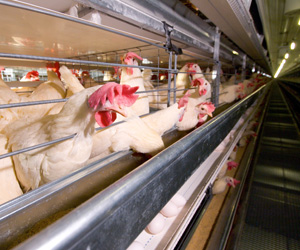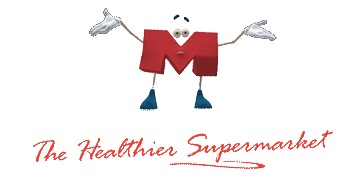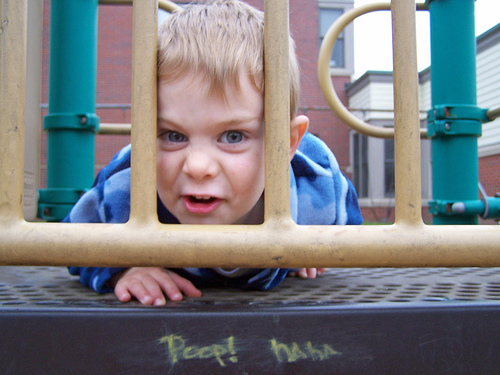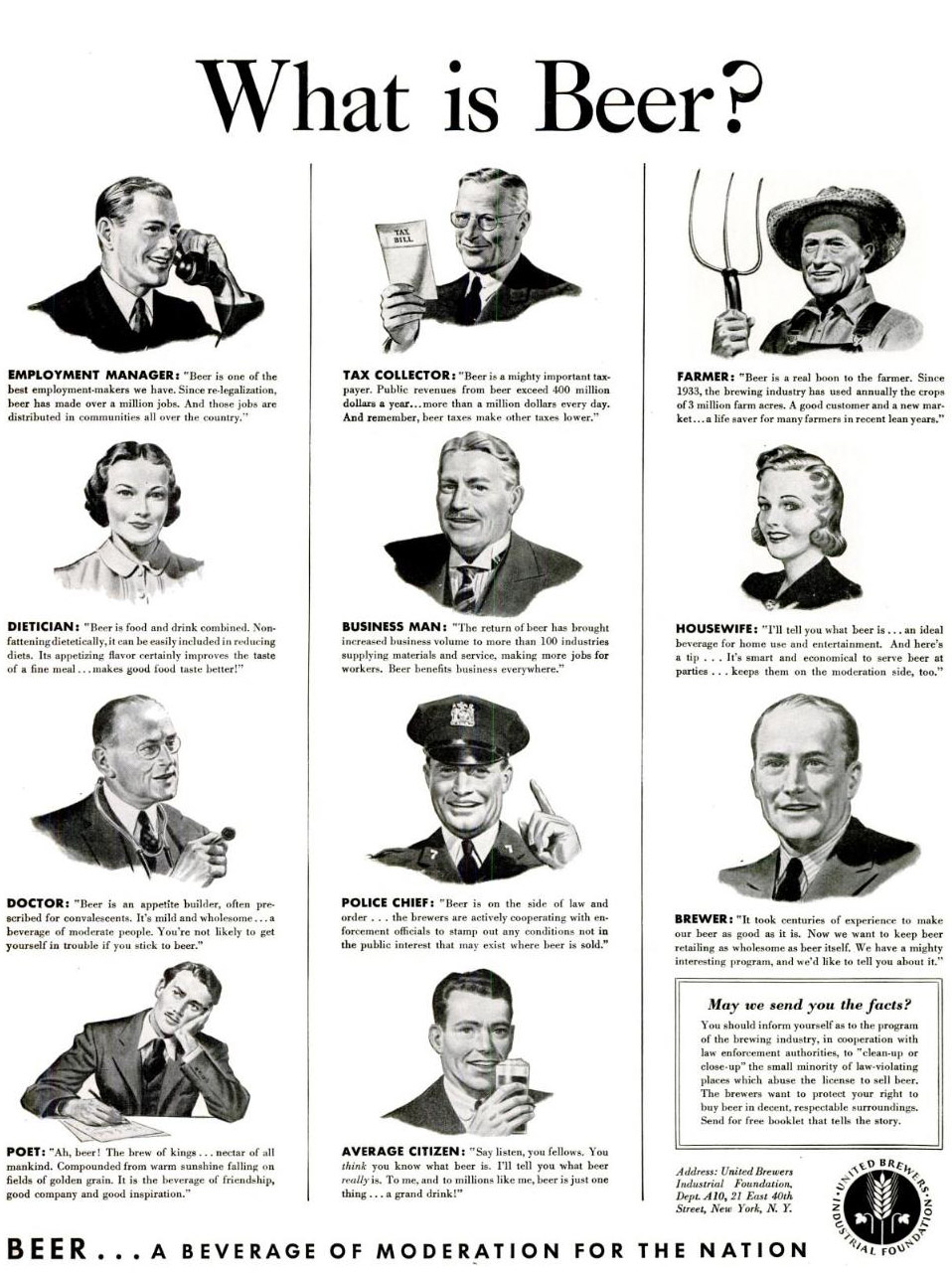The discovery of animal feed laced with dioxin has forced the closure of countless farms and the slaughter of at least 8,000 egg-laying chickens, as German officials on Monday reacted to a widening agriculture scandal.
The state of Lower Saxony said it would temporarily quarantine 1,000 farms with egg hens, pigs and turkeys until the Agricultural Ministry could ensure their products were safe for consumption.
 Gert Hahne, a ministry spokesman in Hannover, said
Gert Hahne, a ministry spokesman in Hannover, said
“We’re shutting everything down first. Consumer protection takes priority.”
The toxic substance, first found last month, is thought to have made its way to Germany’s farms via feed contaminated by a fatty acids mixture from a Dutch distributor.
The animals in the county of Soest will be burned, according to local veterinarian Wilfriend Hopp. He estimated 120,000 eggs contaminated with dioxin had already been sold to the public.
“We’re getting several thousand back from retailers,” he said.
North German animal feed manufacturer Harles & Jentzsch said a Dutch supplier had delivered contaminated fat, which in turn had emanated from a bio-diesel plant run by Petrotech AG in Germany.
Petrotech AG produce the plant-based fatty acid as a by-product in the manufacture of bio-diesel from palm, soya and rapeseed oil. The corporation refused to comment.
Last year, we published case studies examining two incidents of dioxin contamination of food in Belgium and the Republic of Ireland in 1999 and 2008, respectively. In both cases, dioxins reached the food supply through the contamination of fat used for animal feed. The food and agricultural industries connected to each incident relied on crisis management activities of federal governments to limit adverse public reaction.
In 1999, the Belgian government delayed communicating with the public and other European agencies about possible risks, failed to acknowledge perceived risks with dioxin-laden feed, and ultimately suffered huge economic losses, a damaged food industry and deterioration in public confidence.
In the winter of 2008, the Republic of Ireland faced a similar dioxin-in-animal-feed crisis and, unlike the Belgian response, promptly communicated with the public, and acknowledged perceived risks by mandating that all pork products released for sale were to carry a special label to indicate they had no association with the potentially contaminated feed.
“Prompt communications with the public, acknowledgement of both real and perceived risks, and control of stigma surrounding a hazardous incident are important factors in effective crisis management,” said me. “The Irish  government succeeded by not only saying the right things, but by removing potentially contaminated product from commerce in a timely manner. Actions and words must be consistent to manage any crisis and garner public support.”
government succeeded by not only saying the right things, but by removing potentially contaminated product from commerce in a timely manner. Actions and words must be consistent to manage any crisis and garner public support.”
Government management of two media-facilitated crises involving dioxin contamination of food
?Public Understanding of Science?
Casey J. Jacob, Corie Lok, Katija Morley, and Douglas A. Powell
?http://pus.sagepub.com/cgi/content/abstract/0963662509355737v1?
Abstract
Incidents become crises through a constant and intense public scrutiny facilitated by the media. Two incidents involving dioxin contamination of food led to crises in Belgium and the Republic of Ireland in 1999 and 2008, respectively. Thought to cause cancer in humans, dioxins reached the food supply in both incidents through the contamination of fat used for animal feed. The food and agricultural industries connected to each incident relied on crisis management activities of federal governments to limit adverse public reaction. Analysis of the management of the two crises by their respective federal governments, and a subsequent review of crisis management literature, led to the development of an effective crisis management model. Such a model, appropriately employed, may insulate industries associated with a crisis against damaged reputations and financial loss.?First published on February 5, 2010?Public Understanding of Science 2010
 Easter break, medics are warning that half-cooked hamburgers and barely-warmed-through bratwursts can cause digestion disaster.”
Easter break, medics are warning that half-cooked hamburgers and barely-warmed-through bratwursts can cause digestion disaster.”
 commonality, including food, was identified, and all environmental samples (n = 24) were negative. In this localized non-foodborne outbreak, the place of likely infection was a local playground.
commonality, including food, was identified, and all environmental samples (n = 24) were negative. In this localized non-foodborne outbreak, the place of likely infection was a local playground.  Gert Hahne, a ministry spokesman in Hannover, said
Gert Hahne, a ministry spokesman in Hannover, said government succeeded by not only saying the right things, but by removing potentially contaminated product from commerce in a timely manner. Actions and words must be consistent to manage any crisis and garner public support.”
government succeeded by not only saying the right things, but by removing potentially contaminated product from commerce in a timely manner. Actions and words must be consistent to manage any crisis and garner public support.”.jpg) alarming regularity.
alarming regularity. I was a pro, collected every drop in the barf bag, disembarked the plane and deposited the stuff in the first garbage can.
I was a pro, collected every drop in the barf bag, disembarked the plane and deposited the stuff in the first garbage can..jpg) The presiding judge urged the parties to settle the case amicably, according to a press statement, saying it would be "sensible" for the parents to pay for the cab to be cleaned.
The presiding judge urged the parties to settle the case amicably, according to a press statement, saying it would be "sensible" for the parents to pay for the cab to be cleaned. There was blue string soup in that Bridget Jones movie.
There was blue string soup in that Bridget Jones movie. The name of the discount chain that sold the cheese was not disclosed, because it had "managed the situation well" and immediately removed the cheese in question from its shelves, a police statement said.
The name of the discount chain that sold the cheese was not disclosed, because it had "managed the situation well" and immediately removed the cheese in question from its shelves, a police statement said.
.jpg) The ministry said the deaths – four in Austria and two in Germany – occurred last year and were caused by listeria, an organism that can cause serious and sometimes fatal infections in young children, frail or elderly people and others with weakened immune systems.
The ministry said the deaths – four in Austria and two in Germany – occurred last year and were caused by listeria, an organism that can cause serious and sometimes fatal infections in young children, frail or elderly people and others with weakened immune systems. Whole Foods, defenders of all things natural and sustainable, is featuring beer
Whole Foods, defenders of all things natural and sustainable, is featuring beer  A 24-year-old man from Stahnsdorf near Berlin
A 24-year-old man from Stahnsdorf near Berlin